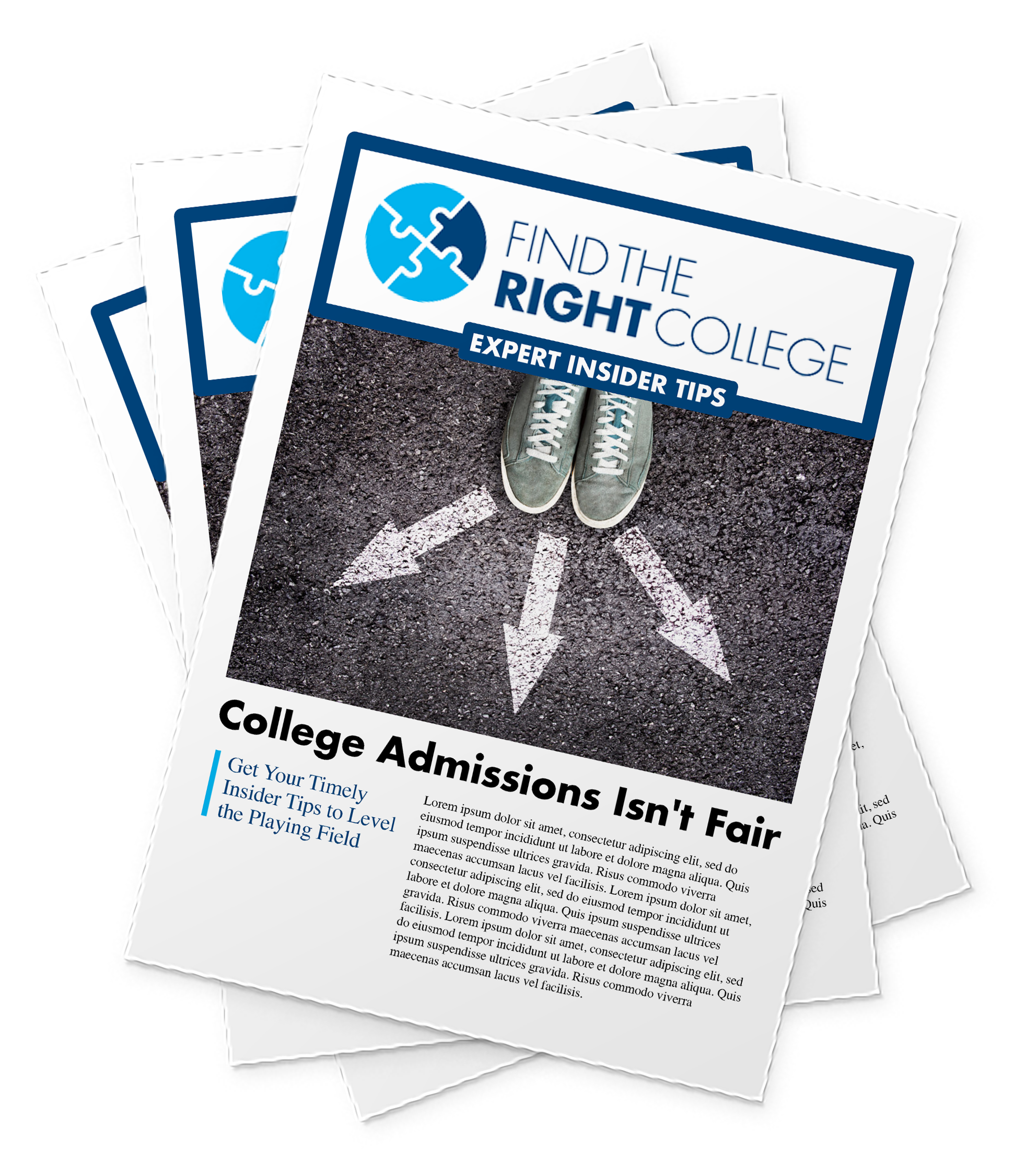Note: This is the second post in our Starting Your College Search series. Read Part 1: Three Ways to Help Parents and Teens Communicate and Part 3: Plan Your Standardized Testing and College Visits.
A basic way to start thinking through how to prepare for college applications involves reviewing each of the main components of the process. As you consider each component, I have listed a few tips below to help you think about what you can do to be ready for next fall. For each of the following components, you should develop a game plan and a to-do list for the next 6-9 months, and stick to it.
1. Your Transcript
This document represents the most important piece of any college application and includes grades from all courses 9th through 12th. The first step in reviewing your transcript involves requesting a copy from your school. Take a look –are there any errors? Is everything clear? Beyond a basic review, reflect on what this transcript says. Are you strong in one area? Have you challenged yourself in a certain way? Finally, think about what you would like your transcript to represent. Are there classes you need to add or change for next year? Keep in mind that the level of rigor in your curriculum, combined with the grades you get, shows colleges how ready you are for college. If you haven’t shown colleges your true potential yet, brainstorm ways to make spring semester stronger, and set some goals.
2. Your Resume
“Resume” here really represents your extracurricular activities. You can actually create a professional-looking resume for colleges using our resume builder, but if you aren’t ready for that, at least think about your activities. Are you demonstrating desirable qualities to colleges – commitment, discipline, service, leadership, creativity, etc.? If not, now might me time to try out for the spring play, or the track team! Colleges review extracurricular activities differently, so understand the role they play and how you can strategically add to your application. Secondly, do you remember all of your activities and awards from high school? I find that once students and parents start making a list, they remember other things. It’s a good idea to begin that list if you have not already.
3. Your Standardized Test Scores
Now is the time to make a plan for taking the SAT or ACT if you have not already. You can read more about the tests and how to make a plan in our membership materials, but your plan should include, at a minimum, the opportunity to take your test of choice twice, and some time and resources to prepare. Keep in mind if you have to take additional tests (TOEFL, SAT Subject Tests, AP/IB exams, etc) you will want to budget in the time and study time for those as well. You need to register for these tests well in advance, and not be at a sporting event or traveling during the test, so planning ahead makes all the difference in having a great test date. Registering in advance of deadlines can also help you get a spot at your preferred testing center, as many of them fill up. Check out the ACT and SAT websites for test dates and registration deadlines.
4. Your Recommendations
Many college applications include letters of recommendation from a counselor, teacher(s), or outside source. These letters can add personality to your application and help highlight the intangible qualities that college admissions officers value: hard work, character, collaborative nature, etc. While many students wait until the fall of 12th grade to ask for these, smart applicants are considering this in 11th grade. 11h grade teachers will have the advantage of teaching you for an entire year, and many of your difficult classes take place in 11th grade. These teachers are the perfect people to speak with authority on your behavior in the classroom and your academic potential. Additionally, your counselor might be a person you know well, or someone to whom you need to introduce yourself. Don’t wait until applications are due to let these key people know that you’ll need their help in applying to college. Giving them a heads-up this year can help them prepare to submit the best possible applications, might help motivate you to perform at your best ability, and also gives you a built-in support team as you work towards your goals.
5. Essays
Essays represent the component that you probably will not spend a lot of time on right now. However, some information is already available – the Common Application has already confirmed prompts for next year’s application, for example. While I would not recommend beginning the writing process yet, you can begin the reflection process. In my experience, identifying a great topic is often the most challenging part of writing, so giving yourself plenty of time to brainstorm and reflect can be powerful. I recommend starting a document, note, or small notebook where you can jot down any ideas that come to you – during class, at dinner or practice, anywhere. The questions you will have to answer can really challenge you to think deeply and reflect on your experiences, so brainstorming examples or moments, and giving your thoughts plenty of time to marinate shows in the final product.
After you have finished your review, be sure to identify clear goals that need to be accomplished in each category, and put them on the calendar. Preparing to apply to college isn’t overly difficult, but it does take some organization and commitment to doing the work!
Nicole has dedicated the entirety of her 20 year career to encouraging higher education opportunities. After graduating from Vanderbilt, she worked in her alma mater’s admissions office. The, she completed her PhD in Counseling so she could bring that expertise into college counseling. Nicole partnered with her former Vanderbilt colleague, Fitz Totten, to form Find The Right College and support their mission to make trustworthy advising more accessible.



